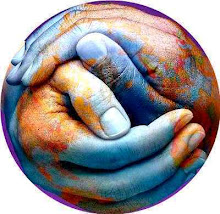Of all the things that we take for granted I think one of the "biggies" is our health, until that is, a problem arises. Such has been my lot this past two weeks. I degenerated quickly from my usual energy level to feeling like I was walking on legs of jello, barely able to stay awake and unable to think clearly. On Monday I was at the doctor getting blood tests, on Thursday I was back at the Doctor and more tests, a phone call brought me in on Friday for more blood tests and then a phone call Friday lunchtime sent me to the hospital for yet more blood tests all culminating in a transfusion of 2 units of blood on Saturday morning. By Saturday afternoon I felt like my "old" self and was told I had some color back in my face. The next few weeks bring more doctor visits all of which will probably culminate in surgery to correct the origins of the problem.
I have listened to people's stories of recovering from cancer and other serious debilitating illnesses, and I have always been thankful that nothing major has affected me in my 50+ years in this Universe. The Buddhist phillosophy puts much emphasis on being in touch with our physical selves as well as our spritual self. In the Tibetan medical tradition, the concept of well-being takes into account the full dynamics of mind, body and spirit to achieve an effective and comprehensive healing strategy. It is immersed in Buddhist tradition, which differs from non-Buddhist medicine in that it utilizes three types of therapeutic intervention: medicinal entities, the power of mantra (a creative, repetitive sound) and the power of meditative stabilization.
In doing so, the Tibetan healing traditions transport us into a strange world of interconnectedness between macrocosmic principles and their microcosmic manifestations; harmony and balance between the cosmic macrocosm and the human microcosm is believed to be essential for health and well-being. This is true not only in the sense that balance is required for health, but also in the somewhat deeper sense that such balance is the essence of health; balance among the physical, psychological and spiritual elements of human existence is health.
Furthermore, the Tibetan Buddhist believes that karma(simply stated, the law of cause and effect) from one's previous incarnations can also be responsible for our illnesses in our present experience. Sakyamuni, the historical Buddha, explained this principle when he said:
In sooth to every man that's born
A hatchet grows within his mouth,
Wherewith the fool, whene'er he speaks
And speaks amiss, doth cut himself . . . (quoted from Samyutta-nikaya in Birnbaum, p.9*)
Our emotional energies are neither good nor bad in themselves; for example, the energy/intelligence that turns to hatred when siezed in the neurotic grip of ego can also manifest as simple, clear awareness of the true situation--thus it is how we relate to our emotional energies that is crucial to well-ness. Understanding one's emotions is an essential part of the Buddhist journey to full awakening and freedom form unwanted conditions of all sorts. However, since most of us have very little ability to work with our emotional energies without creating negative experiences, medicines and other remedies are required.
The mind is considered the origin of all illness and spiritual afflictions. Consequently, much of the healing that the Medicine Buddha promises lies within the mind. The significance of the Medicine Buddha as the Supreme Healer in Tibetan medicine for liberating the individual from suffering is an exemplary metaphor for the mystical elements which are universally inherent in the healing tradition. The tradition is truly a holistic approach to the problem of suffering, both individual suffering and suffering as a universal condition.
(With thanks to: The Art of Healing: A Tibetan Buddhist Perspective on www.dharma-haven.org)
*(Birnbaum, Raoul. The Healing Buddha. Boulder: Shambhala Publications, Inc., 1979).
Saturday, April 5, 2008
Subscribe to:
Post Comments (Atom)

No comments:
Post a Comment